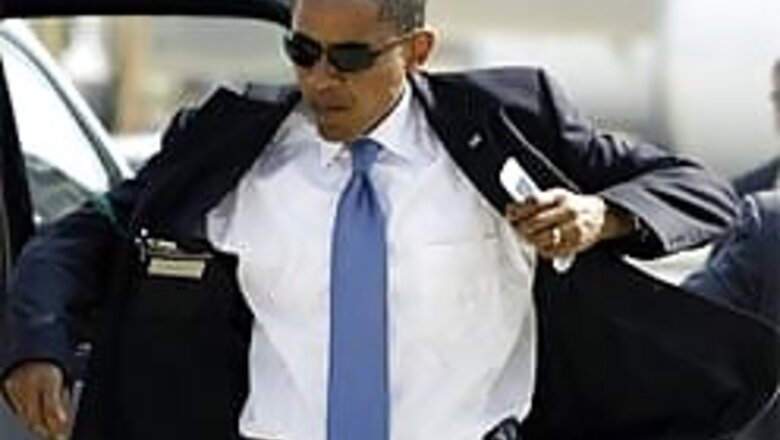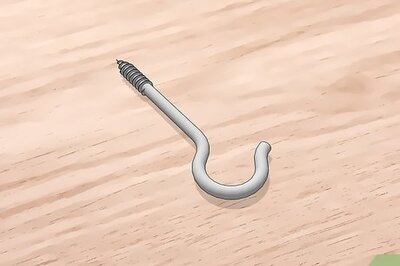
views
Washington: The presumptive Democratic presidential nominee Barack Obama says he would make the US economy strong and competitive again by expanding opportunity outward rather than clamping down on outsourcing to countries like India and China.
"Revolutions in communication and technology have sent jobs wherever there's an internet connection; that have forced children in Raleigh and Boston to compete for those jobs with children in Bangalore and Beijing," he said outlining his vision of the economy in a speech on Monday.
"We live in a more competitive world, and that is a fact that cannot be reversed," Obama acknowledged as he kicked off his presidential election campaign in Raleigh, North Carolina by accusing his Republican rival John McCain of essentially endorsing President George Bush's flawed policies.
The US has faced such fundamental change before, and "each time we've kept our economy strong and competitive by making the decision to expand opportunity outward; to grow our middle-class; to invest in innovation, and most importantly, to invest in the education and well-being of our workers."
"We've done this because in America, our prosperity has always risen from the bottom-up," he said outlining his vision to build a "21st century economy that works for working Americans."
Obama said he too believed in the cause of free trade, as professed by Bush but with a difference. "There is nothing protectionist about demanding that trade spreads the benefits of globalisation as broadly as possible."
"Because we know that we can't or shouldn't put up walls around our economy, a long-term agenda will also find a way to make trade work for American workers."
"We do the cause of free-trade - a cause I believe in - no good when we pass trade agreements that hand out favours to special interests and do little to help workers who have to watch their factories close down," Obama said.
"For all of George Bush's professed faith in free markets, the markets have hardly been free," he said accusing the president of throwing open the gates of Washington "to high-priced lobbyists who rig the rules of the road and riddle our tax code with special interest favours and corporate loopholes."
As a result of such special interest driven policies and lax regulation, prosperity had not trickled down to the man on the street. "Instead, a housing crisis that could leave up to two million homeowners facing foreclosure has shaken confidence in the entire economy," he said.
"I understand that the challenges facing our economy didn't start the day George Bush took office and they won't end the day he leaves," he said acknowledging "some are partly the result of forces that have globalised our economy over the last several decade."
The US "did not arrive at the doorstep of our current economic crisis by some accident of history" nor was it "an inevitable part of the business cycle that was beyond our power to avoid," Obama said. "It was the logical conclusion of a tired and misguided philosophy that has dominated Washington for far too long."
For eight long years, Bush sacrificed investments in health care, and education, and energy, and infrastructure on the altar of tax breaks for big corporations and wealthy CEOs - trillions of dollars in giveaways that proved neither compassionate nor conservative, he said.
For all his talk of independence, the centrepiece of McCain's "economic plan amounts to a full-throated endorsement of George Bush's policies", Obama said suggesting he had "a fundamentally different vision of where to take the country" from his Republican rival.
His vision, the Democratic nominee said "involves both a short-term plan to help working families who are struggling to keep up and a long-term agenda to make America competitive in a global economy".
His long-term agenda will require the US to first and foremost to train and educate its workforce with the skills necessary to compete in a knowledge-based economy.
"We'll also need to place a greater emphasis on areas like science and technology that will define the workforce of the 21st century, and invest in the research and innovation necessary to create the jobs and industries of the future right here in America," Obama said.
At home he offered a prescription of greater government intervention, a long-time Democratic hallmark, that would include tax cuts for middle-income families and retirees, expansion of unemployment benefits, relief for home-owners facing foreclosure, and a $ 50 billion economic stimulus package.




















Comments
0 comment